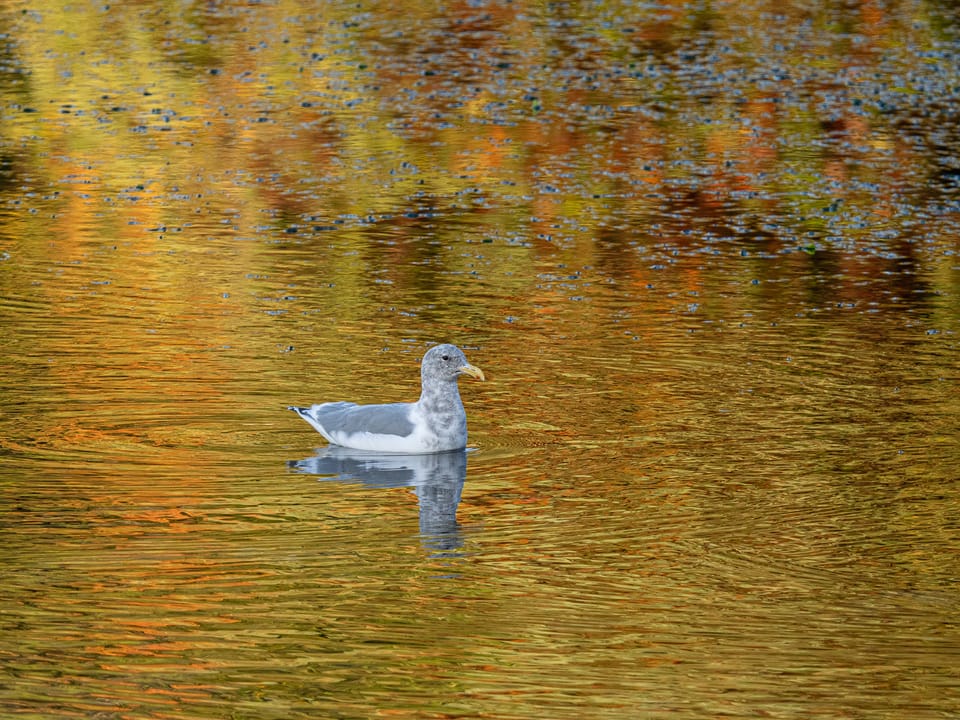EcoWest News, October 15, 2024

Welcome to EcoWest News, a weekly round-up of news and resources that you can put to use in addressing environmental issues and protecting the wild in your community.
Across the West
Rural municipalities are urging the Alberta government to hold oil and gas companies responsible for cleaning up orphan oil wells and contaminated sites. [The Energy Mix]
Oil sands tailing ponds kill birds, especially when oil companies fail to take action or mitigate the risk. [CPAWS Northern Alberta]
Edmonton’s Neighbouring for Climate program brings people together and gives them tools to fight climate change in their community. [CBC]
A private company hopes to build a nuclear power plant in northern Alberta. [CBC]
Wetland drainage in Saskatchewan, even at levels as low as 10%, would be expected to result in an increased risk of flooding, a decline in bird populations, a loss of nutrient reserves, and paying more to treat drinking water. [CJWW Radio]
A SK government-funded report analyzing the costs and benefits of the proposed Lake Diefenbaker Irrigation Project is vague, based on shaky assumptions, and indicates little economic benefit. [CBC]
Over 13,000 people recorded 1 million iNaturalist observations in BC provincial parks over the past 5 years, including a potentially new-to-science species, new populations for endangered and threatened species, and species previously unknown in BC. [Newswire]
Across Canada
The State of Canada’s Birds shows that grassland and shore birds are in trouble with steep declines in population. But, taking action has a positive impact with significant increases in waterfowl, birds of prey and wetland birds. [Birds Canada]
Native bees play an important role in pollinating agricultural crops as they’re tolerant of variations in the weather and superior pollinators. But they’re being forced to compete with introduced honeybees that also introduce viruses and disease. [The Narwhal]
Insurance companies have started to offer incentives so that homeowners build back better after a flood, making their homes more flood-resilient. [CBC]
Around the World
How do we address the sometimes-competing needs for marine protected areas, offshore wind farms, and a sustainable fishing industry? An in-depth look at how Ireland is addressing these issues as it proposes 30% marine protected areas off its coasts. [Ensia]
Making a Difference
Langford, BC, is prioritizing sustainable building materials by requiring concrete to be below a certain emissions threshold that will be gradually reduced over time. [Pembina]
Triodos bank supports a postgrowth future where “we are no longer reliant on perpetual economic expansion to be (socially) stable.” They plan to fund things that are useful, not just things that make money. [Earthbound Report]
The Gila River Indian Community in Arizona has installed solar panels over an irrigation canal, reducing water evaporation and maintenance requirements for the canal while producing energy. [Planetizen]
DIY
Take advantage of fallen leaves to insulate your perennials and to provide safe wintering sites for bumblebees, butterflies, moths, and other insects. [WWF]
Alberta residents are invited to complete a survey to assist in the development of a strategy to maintain, conserve, and manage nature. Deadline is Nov. 7. [Alberta]
Imagine a world where everyone can experience a star-filled sky, where nocturnal ecosystems thrive, and where we all sleep soundly under a blanket of natural darkness. Join the Dark Sky International virtual conference, Nov. 8-9. [DarkSky]
Nature’s Wonders
Two Canadians have won prestigious Wildlife Photographer of the Year awards. [CBC]
Photo credit: https://www.flickr.com/photos/apmckinlay/54062410476/
EcoFriendly West informs and encourages initiatives that support Western Canada’s natural environment through its online publication and the Nature Companion website/app. Like us on Facebook, follow us on Twitter or Mastodon, or subscribe by email.

Member discussion